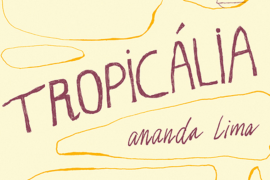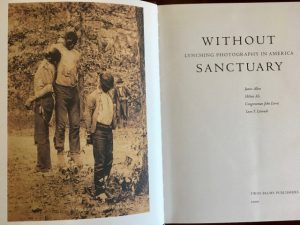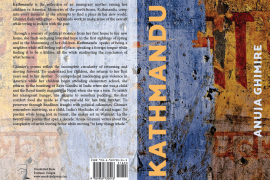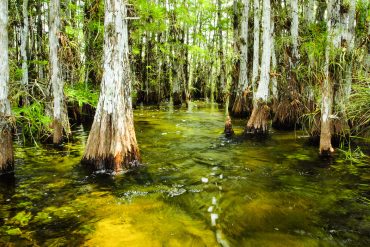Looking into the eyes of a grouse he has just shot, Mike Freeman sees “a brown pupil encased in custard,” an eye that “didn’t seem much different than my own. For a fading moment life laid within it and I could see intelligence taking its last look on the world.” Reading this passage from Freeman’s memoir, Neither Mountain nor River, I was reminded of Aldo Leopold’s account of seeing a wolf shot, recorded in his famed 1949 essay collection, A Sand County Almanac: “We reached the old wolf in time to watch a fierce green fire dying in her eyes. I realized then, and have known ever since, that there was something new to me in those eyes—something known only to her and to the mountain.” This experience is a turning point for Leopold, and serves as the basis for his conservation ethic. The reader is left with the impression that he never shot another wolf.
Freeman seems to draw other conclusions. He comes to believe that “a common cognizance runs through us all,” humans and grouse alike, but this certainly does not put an end to his grouse hunting days. Neither Mountain nor River describes a lifetime of hunting and trapping, and readers witness the drowning and skinning of mink, the death throes of a grouse, dead muskrats dangling from Freeman’s river-chilled hand. Freeman expertly paints a landscape he knows intimately through these pursuits, gifting readers with lush depictions of eastern woodlands and Alaskan rainforest. As someone who neither kills nor eats animals, I found Freeman’s book a fascinating, if sometimes difficult, glimpse into the perspective of a hunter, allowing me to understand what once seemed like a contradiction: that the act of pursuing other creatures through their natural habitats can foster a profound respect and intimacy both with those creatures one kills and their wild homes.
With its rich descriptions of wildlife and wild landscapes, Neither Mountain nor River is, more than anything, a sumptuous account of a life spent outdoors. In the tradition of Aldo Leopold, Edward Abbey, Annie Dillard, and so many others, Freeman uses his detailed observations to make the strange familiar and the familiar strange. Take this sketch of the landscape Freeman encounters on a canoe trip through the Alaskan rainforest: “Dense and encompassing, the standing timber fractured the sun in thick shards, which then hit the mossy ground at all angles…Several boulders, huge and out of place in a land with little bedrock, were strewn sporadically about the slope where the glaciers, on their way back into the mountains, had dumped them centuries before.” At its best, Neither Mountain nor River puts us right in the middle of these remote places, revealing in striking detail the beauty of the landscape, from the massive to the minute.
But Neither Mountain nor River does not stick solely to the land; the book’s subtitle— Fathers, Sons, and an Unsettled Faith—promises more. If Freeman’s relationship to his surroundings is the strongest current of the book, his relationship with his father is a lovely, if ephemeral, tributary. For Freeman, hunting and trapping are never solo affairs. He learns everything he knows from his Pop, a man whose wisdom and outdoor acumen have ballasted Freeman his entire life. He charts their relationship through his idyllic childhood, sullen adolescence, and nomadic adulthood, always returning to their easy companionship for quiet co-communion with wild settings.
Readers come to understand that Freeman’s connection with his father is fundamental to his sense of place in the world, without getting to know Pop very well as a character. Neither Mountain nor River offers full, detailed depictions of specific hunting and trapping excursions, right down to the shrubs that tore at Freeman’s pant legs on a particular day, while offering only the briefest sketches of other facets of his life. As with every human who appears on the pages of this book besides Freeman himself, readers are told a few key facts about Pop’s life, and hear a few conversations between the men, without really understanding who Pop is, and what motivates his decisions. Freeman’s life as an outdoorsman is compelling, but other parts of his experience seem equally so, and these he barely glosses. I wanted to know more about the death of Freeman’s mother when he was in his mid-twenties, the quick remarriage of his father, Freeman’s whirlwind romance with the woman he would marry, his sudden relocation to New York City after years in rural Alaska, his experience as a father to an autistic child. Throughout the book, Freeman recounts these events quickly and matter-of-factly, before returning to verdant descriptions of his time in the wild.
In the years since the publication of Neither Mountain nor River, Freeman has written a number of beautiful essays and blog posts about his experience raising his daughter Shannon, who is autistic and nonverbal. “We’ve been dazed since her birth, and have grown fond of the bewilderment,” he says in a blog post for the organization Autism Speaks. “When I’m with her we gain all the benefits of love and kinship paired with the ability to pay attention to things that comes when people are alone. We both love the woods, and watching her explore, observing what’s around her – dragonflies, hummingbirds, birch bark, gurgling water, everything – without the ability to question, it really does feel like you’re shoulder-to-shoulder with the beginning.” Here I find the kind of reflection on parenting that I longed for in Neither Mountain nor River. In his book, readers see the richness of Freeman’s relationship with his father in the context of the expansive and endlessly fascinating natural world; this makes me want to know about the unique beauty of Freeman’s relationship with his own children in that same context. How has his understanding of nature changed in light of his experience of fatherhood? How does he make sense of his solo, backwoods past now that he is a town-dwelling, stay-at-home parent? Does he yearn to go hunting again?
Having never hunted, I learned a great deal from Freeman about the perspective of a hunter, a perspective I appreciate in a new way after reading this book. But in addition to having never gone hunting, I have also not yet lost a parent, had a whirlwind engagement, or raised an autistic child. I found myself wanting to learn from Freeman about these experiences as well, in as much compelling detail as I learned about the final moments of a dying grouse. Freeman has clearly lived a unique and fascinating life, and I hope to read more of its many layers in his future work.





